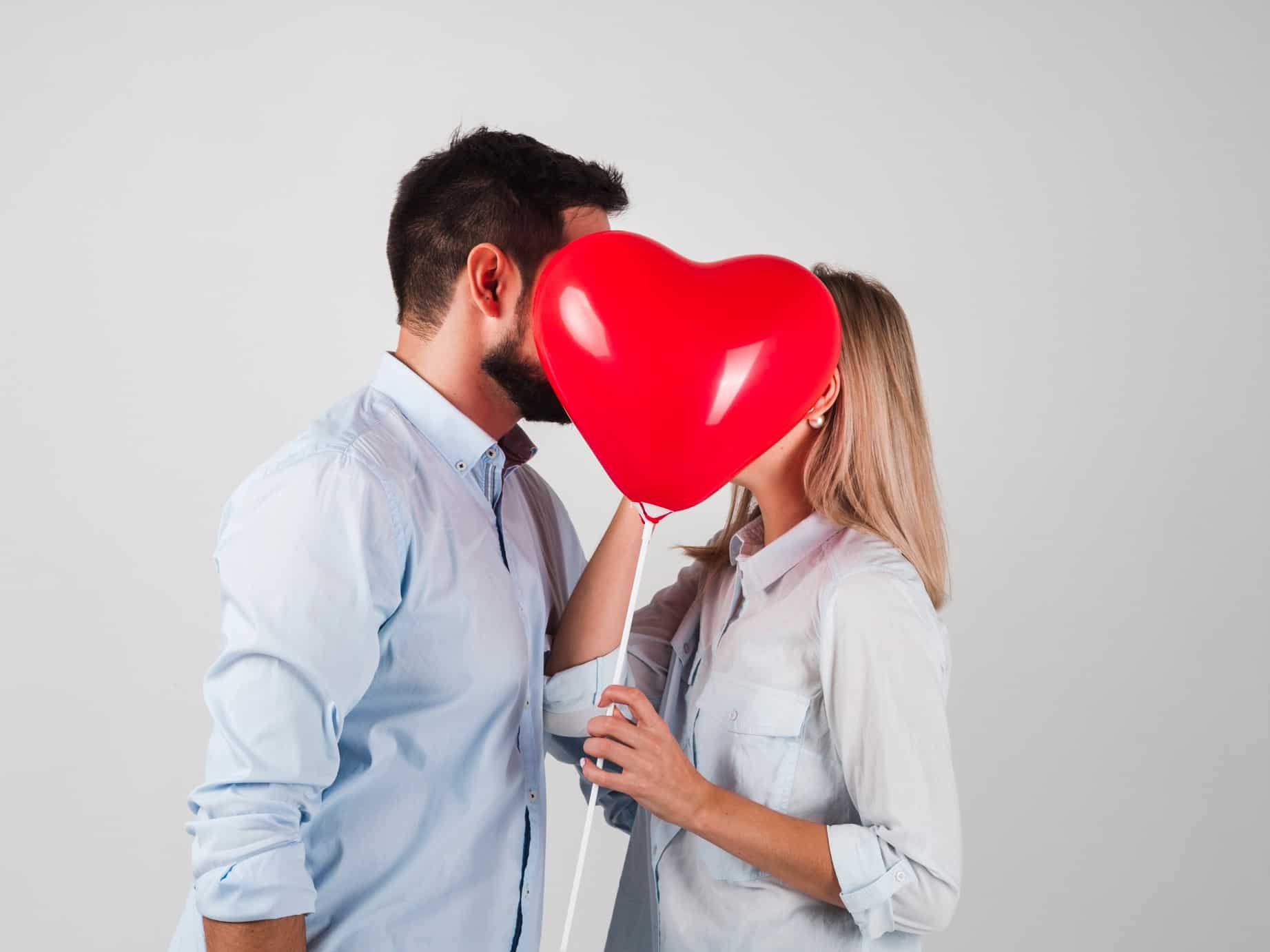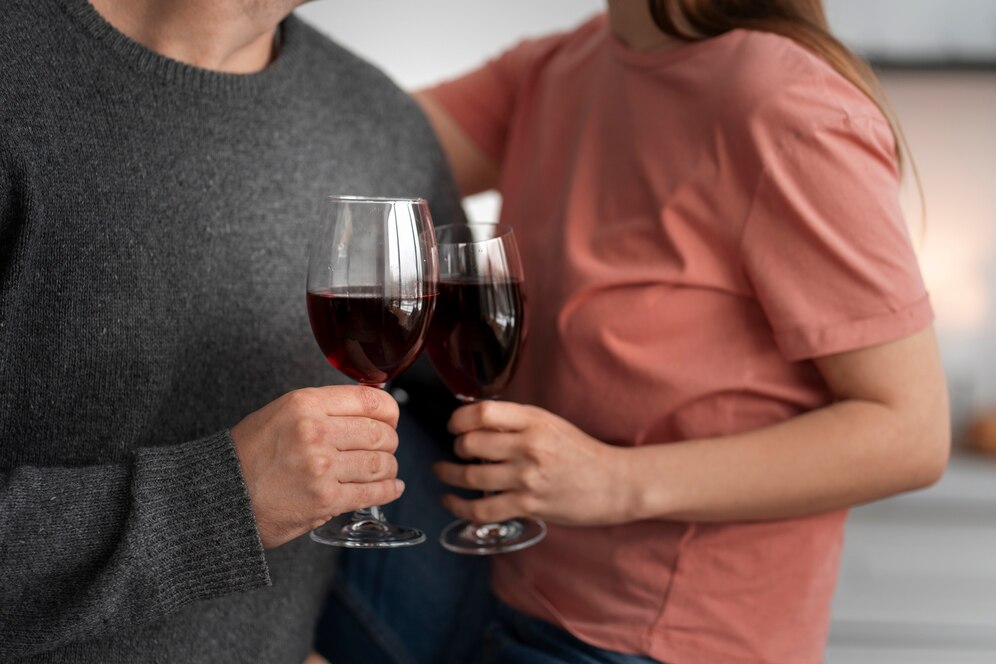Kissing is a universal expression of affection, desire, and love. It transcends cultural boundaries and has been a part of human interaction for centuries. Beyond its emotional significance, kissing has been found to offer a wide array of health benefits that extend far beyond the realm of romance. We will delve into the fascinating world of the health benefits of kissing, exploring the science behind this intimate act and how it can positively impact your physical and emotional well-being.
The Science of Kissing
The Anatomy of a Kiss
To understand the health benefits of kissing, it’s essential to grasp the intricate anatomy of this seemingly simple act. A kiss involves complex interactions between various body systems, such as the nervous, circulatory, and endocrine systems. This section will break down the anatomy of a kiss, highlighting the role of lips, tongue, and saliva.
The Neurochemistry of Kissing
Kissing triggers a cascade of neurochemical reactions in the brain, leading to the release of feel-good hormones like oxytocin and dopamine. We’ll explore the fascinating neuroscience behind kissing, discussing how it can improve mood and reduce stress.
Emotional Well-being
Stress Reduction
Kissing has been shown to reduce stress levels by lowering the production of cortisol, the body’s primary stress hormone. This section will delve into the research on how kissing can provide stress relief and improve overall mental well-being.
Bonding and Emotional Connection
Kissing plays a crucial role in establishing and maintaining emotional bonds between individuals. We’ll discuss the significance of kissing in romantic relationships, family bonds, and friendships, and how it fosters emotional connection.
Enhancing Self-esteem and Confidence
Kissing can boost self-esteem and confidence by making individuals feel loved and desired. We’ll explore how this emotional boost can have a positive impact on one’s overall sense of self-worth.
Physical Health Benefits
Immune System Boost
Kissing may help strengthen the immune system by exposing individuals to a variety of microorganisms present in their partner’s saliva. We’ll examine the research supporting this intriguing aspect of kissing and its potential benefits.
Cardiovascular Health
Surprisingly, kissing can have a positive impact on cardiovascular health. We’ll explore studies that suggest how kissing can lower blood pressure, reduce the risk of heart disease, and improve overall heart health.
Calorie Burning
Is kissing a workout? While it may not replace your gym routine, kissing can burn calories. We’ll provide insights into the energy expenditure during a passionate kiss and whether it can contribute to weight management.
Kissing and Mental Health
Alleviating Symptoms of Depression
Kissing’s ability to release mood-enhancing chemicals in the brain can help alleviate symptoms of depression. We’ll delve into the research on how kissing can be a natural and enjoyable way to combat the blues.
Pain Relief
Surprisingly, kissing can serve as a natural pain reliever by stimulating the release of endorphins. We’ll explore how a loving kiss can help reduce pain and discomfort.
Improved Sleep Quality
Kissing promotes relaxation and emotional connection, making it easier for individuals to fall asleep and enjoy better sleep quality. We’ll discuss the science behind this phenomenon and its implications for insomnia sufferers.
Kissing and Longevity
The Relationship Between Kissing and Longevity
Research suggests that individuals in loving, affectionate relationships tend to live longer. We’ll examine the role of kissing in fostering long-lasting relationships and its potential impact on life expectancy.
Cultural and Historical Perspectives
Kissing Traditions Around the World
Kissing customs vary widely across different cultures and time periods. This section will explore how societies have viewed kissing throughout history and how cultural norms shape our understanding of this intimate act.
Conclusion
In conclusion, the act of kissing goes far beyond a mere display of affection. It holds the power to positively influence our physical and emotional well-being. From reducing stress and improving cardiovascular health to enhancing emotional connections and even potentially increasing our lifespan, kissing is a simple yet profound act that can contribute to a healthier, happier life. So, the next time you lean in for a kiss, remember that you’re not only expressing love but also reaping a multitude of health benefits.
FAQ: Health Benefits of Kissing
Q1: Are there any actual health benefits to kissing?
A1: Yes, kissing has been associated with several health benefits, both physical and emotional.
Q2: What are the physical health benefits of kissing?
A2: Kissing can boost your immune system by exposing you to new bacteria, help with pain relief, and even burn a few calories.
Q3: How does kissing boost the immune system?
A3: Kissing can introduce new bacteria to your body, helping your immune system build defenses against them and potentially making it stronger over time.
Q4: Can kissing help with pain relief?
A4: Yes, kissing and other forms of physical affection can trigger the release of endorphins, the body’s natural painkillers, which can help reduce pain and improve overall well-being.
Q5: Is it true that kissing can help with stress reduction?
A5: Yes, kissing can reduce stress by lowering the levels of the stress hormone cortisol and increasing the release of oxytocin, a hormone associated with bonding and relaxation.
Q6: Can kissing help with weight loss?
A6: Kissing can burn a small number of calories (typically 2-3 calories per minute), so while it’s not a significant weight loss method, it can contribute to overall calorie expenditure.
Q7: Are there emotional benefits to kissing?
A7: Absolutely. Kissing promotes emotional bonding, enhances intimacy in relationships, and can improve mood and self-esteem.
Q8: How does kissing enhance emotional bonding?
A8: Kissing releases oxytocin, often called the “love hormone,” which strengthens emotional connections and trust between partners.
Q9: Can kissing improve self-esteem?
A9: Yes, kissing and feeling loved and desired can boost self-esteem and confidence.
Q10: Are there any risks associated with kissing?
A10: While kissing is generally safe, it can transmit infections like cold sores, the flu, or infectious mononucleosis (mono). Practicing good oral hygiene and being aware of your partner’s health can minimize these risks.
Q11: Can kissing improve oral health?
A11: Kissing may help improve oral health by stimulating saliva production, which can help wash away harmful bacteria in the mouth.
Q12: Is there a recommended amount of kissing for health benefits?
A12: There’s no specific recommended amount, but regular affectionate kissing in the context of a loving and consensual relationship can contribute to overall well-being.
Q13: Can people with allergies or asthma kiss without problems?
A13: People with allergies or asthma should be cautious if their partner has recently consumed allergenic foods or substances that trigger their condition. Communicating openly about allergies and asthma is essential.
Q14: Can kissing benefit mental health?
A14: Yes, kissing can have positive effects on mental health by reducing stress, improving mood, and enhancing feelings of happiness and connection.
Q15: Is there a difference in the health benefits between romantic and non-romantic kissing?
A15: Some health benefits, like stress reduction and pain relief, can be experienced in both romantic and non-romantic kissing, but the emotional bonding benefits are typically more pronounced in romantic relationships.
Please note that while kissing can have health benefits, it should always be consensual and within the boundaries of a healthy and respectful relationship. If you have specific health concerns or questions about kissing, it’s a good idea to consult with a healthcare professional for personalized advice.




